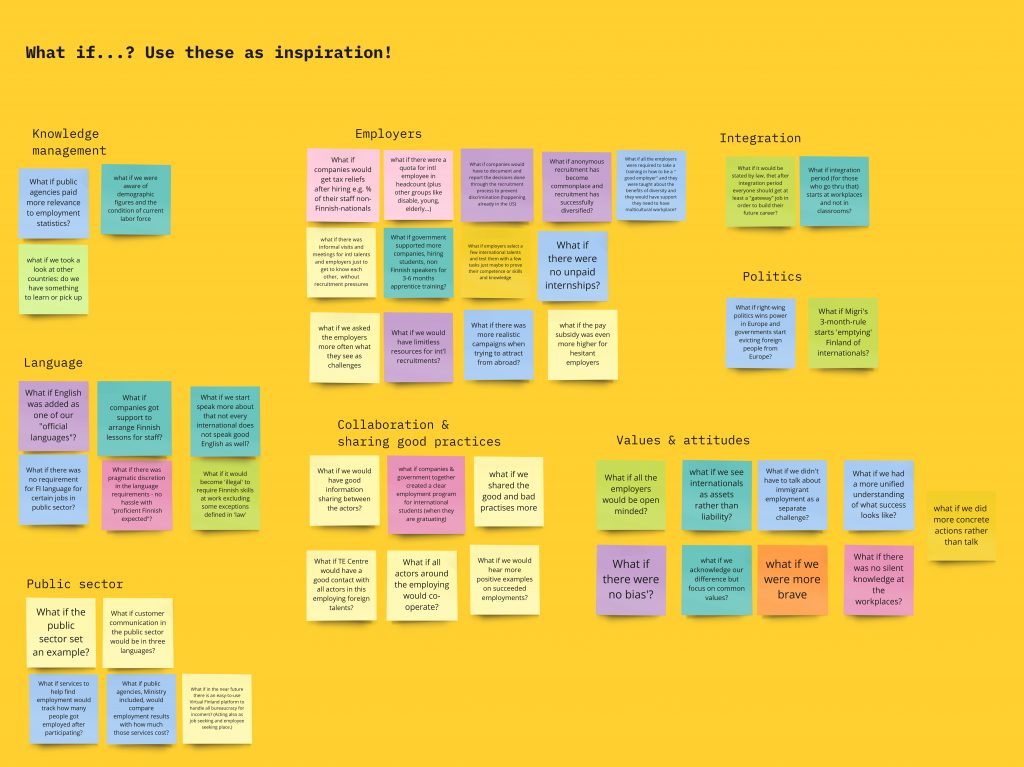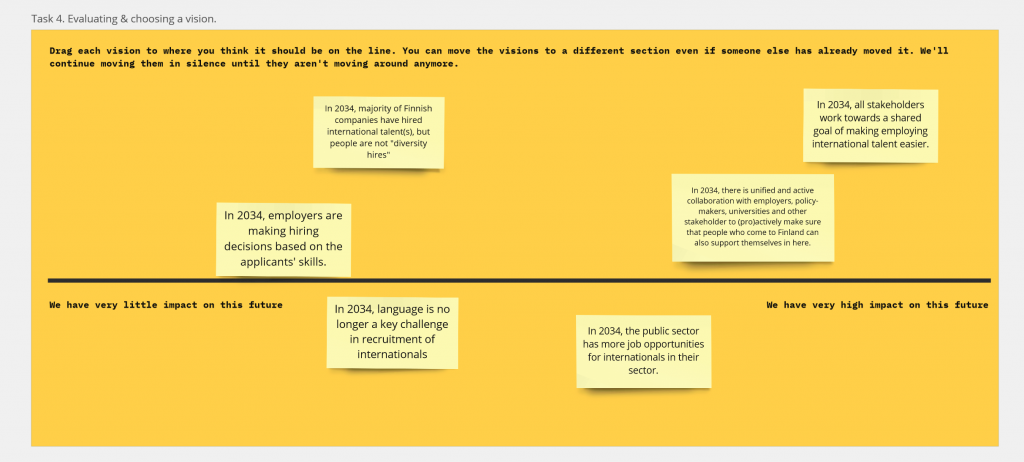Enhancing internationals’ recruitment – but how?
In recent years, many services have been developed and implemented to strengthen the society and economy by supporting the integration of highly skilled internationals into the Finnish labour market. Still, problems with the recruitment of internationals continue. What can be done about them? Finding answers to this question is one of the key tasks of the HIWE project.
Why companies do, or do not, hire internationals?
We brought together a diverse group of stakeholders, including international talents as well as representatives from the public sector, companies, and universities to address the challenges with the practices of recruiting highly skilled internationals in a round of workshops in January 2024.
The participants exchanged experiences and views on the reasons of why companies hire or don’t hire international talent.
The experience of many is that companies – especially small and medium-sized ones – avoid hiring internationals because they lack the knowledge, skills and other resources to do so, they do not properly understand the benefits of hiring internationals, and hiring Finns is a more convenient option for them, for example for language reasons. Companies may assume that non-Finnish-speaking employees cause extra effort and costs.

The participants also pointed out that companies lack an understanding of the economic, cultural and other benefits that hiring employees from diverse backgrounds may bring along. Moreover, there are many services and guidance available for learning Finnish or Swedish or promoting the values of DEI (diversity, equity, inclusion) in the workplace, but they are not widely known and utilised. (See our policy analysis.)
The workshop series also discussed the fact that the public debate often overemphasises the problems of recruitment of internationals. There are also a lot of success stories which deserve publicity as well. This would be one way to promote both companies’ and other actors’ awareness of the positive possibilities of international recruitment. Although DEI values are important to many companies, hiring internationals is not about charity, but about carrying out business successfully.
Co-creating solutions – what should be done?
It was concluded that although there are plenty of services available, there is too little cross-sector cooperation between various actors to support internationals’ recruitment efficiently and effectively.
That’s why the participants found it important to develop specifically the internal collaboration of the service ecosystem. In this way, the actors in the system would know more about each other’s activities, which would, in the end, make it easier for them to direct service users to the right services in a timely manner.
Another problem identified was that the skills and experiences of the key users of the services (internationals and companies) are hardly utilised when developing the services. A lot can be done here as well.

Workshop participants’ vision for the future would entail employers having a better understanding of the economic and other values that international talents would bring along, as well as more appreciation towards cultural and language diversity in workplaces.
Discussion goes on
See also Vaida Kavaliukaitė-Kaijanmäki’s post and following comments in LinkedIn for more views and ideas of internationals on the topic of the workshop.
The discussion on the development of more effective employment-related services for internationals and companies continues in another series of HIWE workshops organised in February 2024.
Authors: Tiina Rättilä, Piritta Parkkari, Satu Aaltonen, Anna Elkina, Tommi Pukkinen and Oskar Aaltonen
